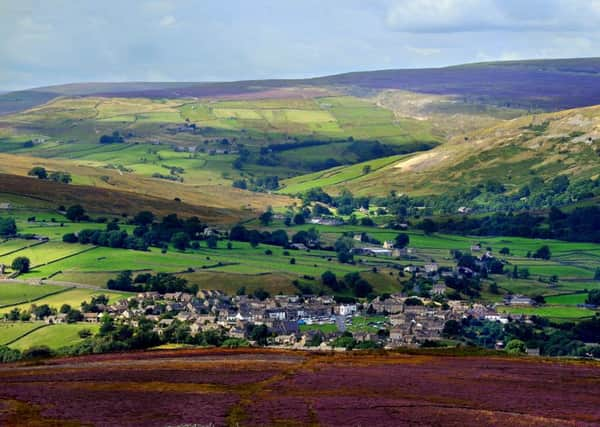Sir Richard Packer: Farmers need answers on Brexit issue


We must clarify matters as soon as possible. One question we need to ask ourselves concerns agriculture and it comes in two parts. First what effect will agricultural matters have on the exit negotiations; and, second, what will be the position of agriculture post-Brexit?
On the first question agriculture can be expected to feature prominently in the Brexit negotiations. Here the UK will have a strong hand. Agriculture is important to the EU since the size of the agricultural sector there is more than twice that of the UK measured as a proportion of economic output (1.6 per cent of GDP vs 0.7 per cent).
Advertisement
Hide AdAdvertisement
Hide AdFurther, our imports of food and drink from the rest of the EU are worth roughly twice as much as our exports to them; our trade deficit in these products with the EU is an astonishing £17bn annually. Clearly European exporters of fruit, wine and so on will want to protect their advantageous position in the UK market and that should give our negotiators a very useful card to play. Let us hope they use it wisely.
Whether they do or not, there will be one major gain from Brexit. We will stop paying large sums – literally many billions annually – to support agriculture in the other EU member states. Put simply under the rules, because our agricultural sector is relatively small, we end up paying more than our fair share. This imbalance in agriculture is the main reason why we have long had an EU budget problem and is why Margaret Thatcher had to battle so hard to obtain a partial rebate.
Whatever the results of the Brexit negotiations, we will need to decide on an agricultural policy for the UK for the coming years.
The decisions we will take in the next few years on this are likely to be with us for a long time, so it is sensible to ask ourselves carefully, what do we want from an agricultural policy?
Advertisement
Hide AdAdvertisement
Hide AdTaking it as read that we will stop paying for agriculture in other member states I suggest the main things we want are:
An efficient industry which contributes to national prosperity;
A policy which costs no more than the present one;
To protect the environment;
A policy which has regard to the needs of consumers;
One which minimises bureaucracy and administrative costs.
I have heard it suggested that we might consider returning to the system of agricultural support we operated before we joined the EU. That would be a retrograde move. The administrative costs before 1973 were high and a whole new, and doubtless expensive, computing system would be needed. Experience shows the public sector and large new computing systems do not go well together and should be avoided if possible. Further the world has moved on and we need to look forward not back.
My conclusion is that something close to the present system of support suits the UK quite well provided there is no longer any question of paying for agriculture in other countries. This may seem surprising to those whose memories go back to the debates over ‘butter mountains’ and ‘wine lakes’. But the truth is EU agricultural policy has been steadily and quietly improved over the last 20 years. Most prices have been reduced to close to world market levels and enormous progress has been made in greening the policy for which improvements UK governments can take much of the credit.
Advertisement
Hide AdAdvertisement
Hide AdOf course there will be scope for improvement in the present arrangements. The bureaucracy ought to be streamlined and some of its more irritating and petty rules removed.
Post-Brexit, there will also be scope for adopting a more rigorous scientific attitude on matters such as pesticides and biotechnology including GM. We cannot afford the luxury of ignoring scientific advance because Luddites shout louder than the rest of us. But the basic system suits us quite well.
As for farmers – from Yorkshire and elsewhere – they should concentrate on what they do best, namely providing nutritious, high quality food as efficiently as science allows. World population and average incomes are growing. This provides opportunities. There is every reason to expect that determined, thoughtful and hard-working farmers will continue to thrive.
Sir Richard Packer was a career civil servant mostly at the Ministry of Agriculture, Fisheries and Food (MAFF). He is author of Brexit, Agriculture and Agricultural Policy published this month by the Centre for Policy Studies.